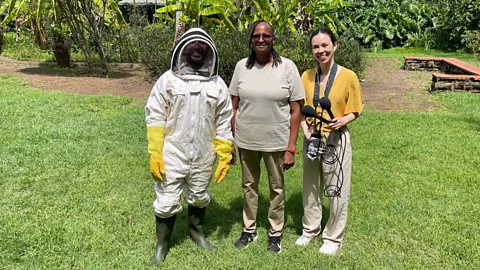
CrowdScience
CrowdScience
Can eating honey help save bees?
May 23, 2025
27 minutes
Available for over a year
CrowdScience listener Saoirse is vegan and doesn’t eat honey. But she’s been wondering - might honey actually have environmental benefits, by giving bee populations a boost?
To find out, presenter Anand Jagatia dons a bee suit and opens up some hives with biologist Dave Goulson, who reveals that there are over 20,000 bee species on earth – and not all of them need saving. Honeybee researcher Alison Mcafee talks about the importance of beekeeping for crop pollination, and why honeybee colonies around the world are collapsing. Although, as she explains, in some places beekeeping might actually be bad for endangered wild bees. We travel to Kenya to meet Loise Njeru and Lucy King, who show how the humble honeybee can be a powerful tool for conservation – helping to protect the mighty elephant. And, on a rooftop in London, former beekeeper Alison Benjamin explains how we can the wild bee species that need our help.
Producer and presenter: Anand Jagatia
Location recording: Sophie Ormiston
Series Producer: Ben Motley
Production Co-ordinator: Ishmael Soriano
